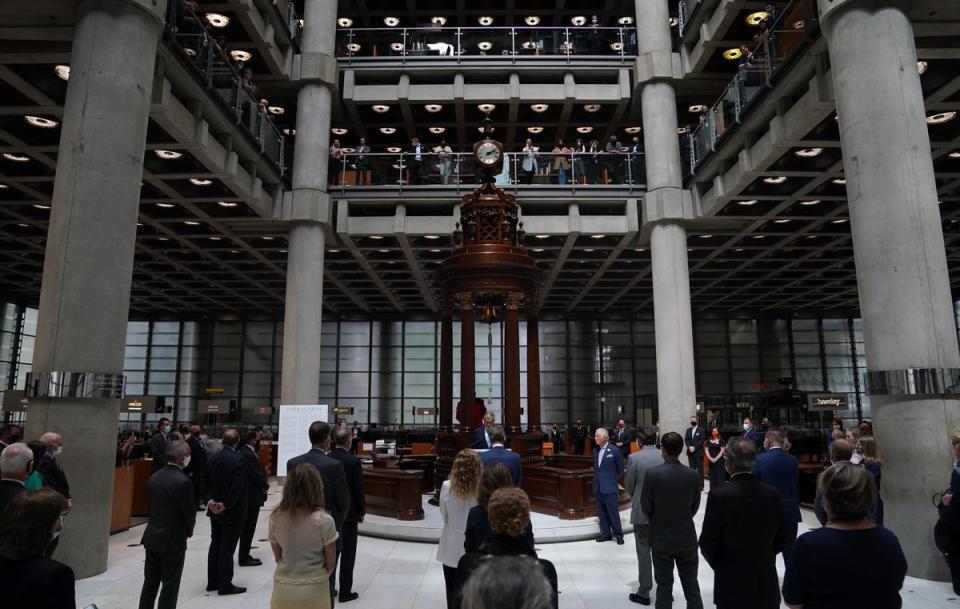Lloyd’s of London puts aside £1.1bn for claims hit from Ukraine war

Lloyd’s of London has set aside more than £1 billion to cover insurance claims from the Ukraine war as the leading insurance market flagged a challenging year of natural disasters, high inflation and geopolitical challenges.
Lloyd’s revealed it had put aside £1.1 billion of reinsurance for customers impacted by the war, having previously warned investors that the Ukraine conflict will be a major claim on the group.
As a big insurer of cargo and aviation, it has been hit by planes being grounded and ships stranded as a result of the conflict – not long after suffering the impacts of the pandemic.
But it stressed that any claims would be manageable and not create solvency challenges for the group.
Half-year figures showed the marketplace swung to a loss in the first half of the year, posting a deficit of £1.8 billion against a £1.4 billion profit made during the same period last year.
Rising interest rates prompted an investment loss of more than £3 billion in the first half, which has dragged down its profits, but the market will begin to benefit from higher rates in 2023, Lloyd’s said.
Rising interest rates, while prompting an unrealised investment loss on paper at the half year, will be good news for insurers in the long term as returns on assets strengthen in 2023 and beyond
John Neal, Lloyd's of London's chief executive
Lloyd’s said has provided insurance for ships carrying food from Ukrainian Black Sea ports since July, helping to release millions of tons of grain trapped in the invaded country.
It has also played a role in imposing sanctions on Russia by working with governments and regulators around the world.
John Neal, Lloyd’s of London’s chief executive, said: “With political and economic uncertainty looming large over society, it’s more important than ever that insurers are ready to support.
“Lloyd’s results today point to both the sustainable performance of our market and the resilience of our capital position, enabling us to continue supporting customers through whatever lies ahead.
“Rising interest rates, while prompting an unrealised investment loss on paper at the half year, will be good news for insurers in the long term as returns on assets strengthen in 2023 and beyond.
“Meanwhile, with the conflict in Ukraine continuing to inflict devastating consequences, we’ve taken proactive steps to protect our customers from the fallout while ensuring we can support them – and continue driving sustainable performance – through the uncertain times ahead.”
The company said its underwriting profits had improved this year, hitting £1.2 billion compared with £960 million in the first six months of 2021.
It comes after the group announced on Wednesday that all its staff earning less than £75,000 would be granted a one-off £2,500 cost-of-living payment.
Lloyd’s said the bonus would help staff during challenging times and when energy and food prices are rising rapidly.

 Yahoo Finance
Yahoo Finance 